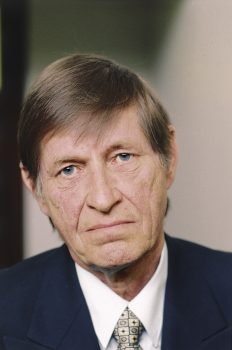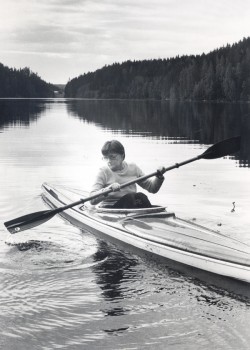Archive for December, 1978
The Conference
Issue 4/1978 | Archives online, Fiction, Prose
A short story from Alamaisen kyyneleet (‘Tears of an underdog’, Karisto 1970). Introduction by Pekka Tarkka
Dr Smith said that he did not believe that any immediate threat of an invasion from Space was likely to arise for some time. Observations to date had given no support to the view that any such preparations had been put in hand. Technically they were of course ahead of us, but in his opinion there was no cause for panic. Nor could he endorse the widespread but naive assumption that any confrontation with beings from Space must inevitably lead to war. If human beings had reason to feel threatened, it was from each other that the chief threat came. He urged the Conference to work for a situation in which every country would be preparing for peace rather than for war. He said he had no wish to sound sardonic, but that he had noticed that when war was prepared for, it was usually war that ensued. More…
Poems
Issue 4/1978 | Archives online, Fiction, poetry
Poems from Kuolleet vedet (‘Dead waters’). Introduction by Aarne Kinnunen
1
A faraway tucked-away room
Leathery harness odour
An obscure carriage house
A mighty delay
And out through a narrow gate slipped childhood
And a pony cart was coming to get us
swishing on the sand
White gloves on the coachman
and ornamented with a whip, the lash sounding
We were driving through spotted leaves
Lustre, dolour, lustre,
remembrance, snow
And suddenly the driver was gone
and nothing but hands were gripping the horse
and they were leading me I don’t know where. More…


